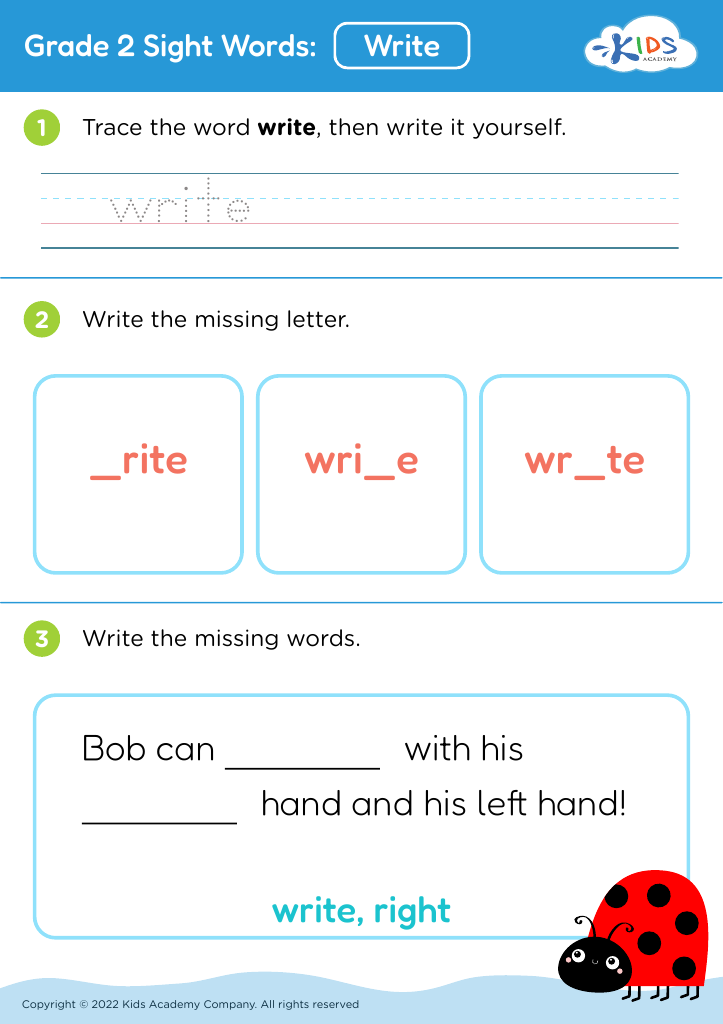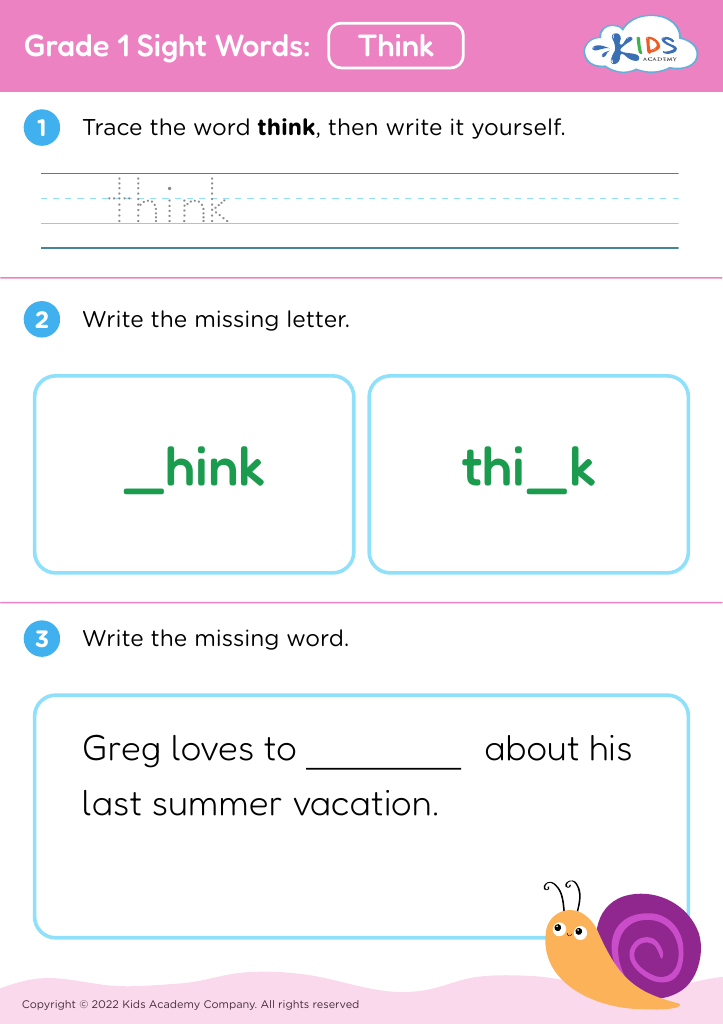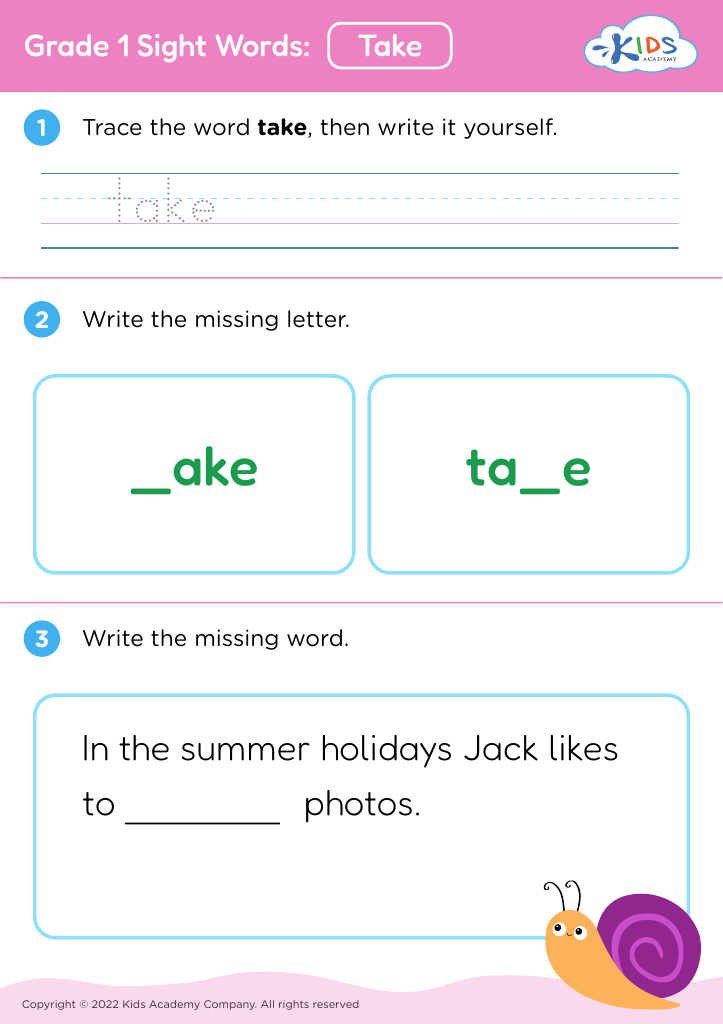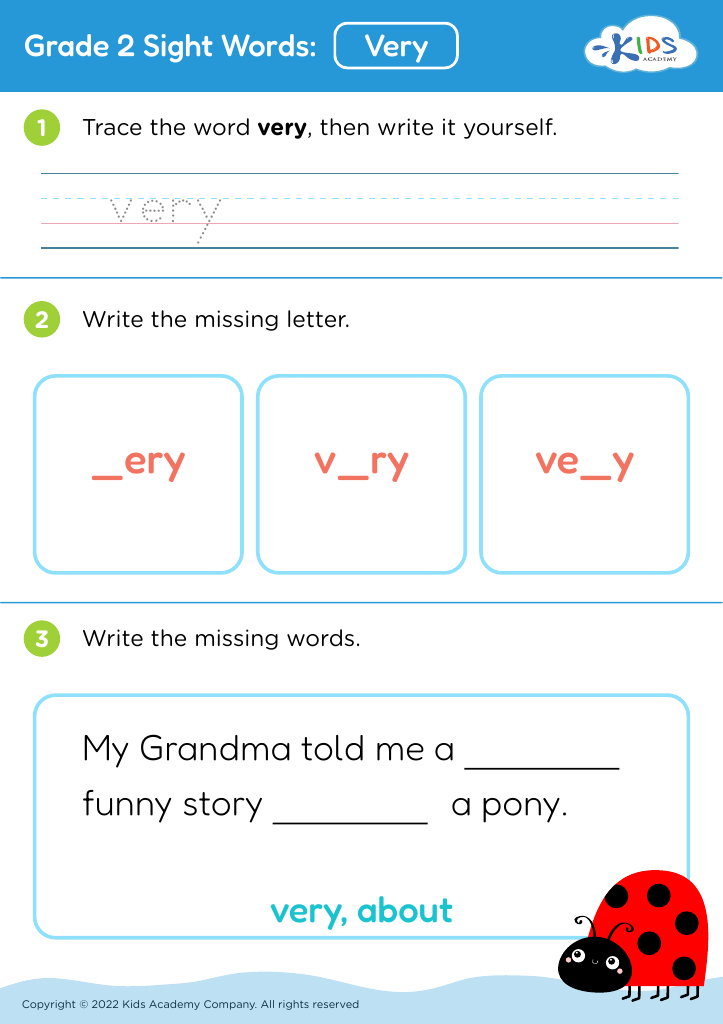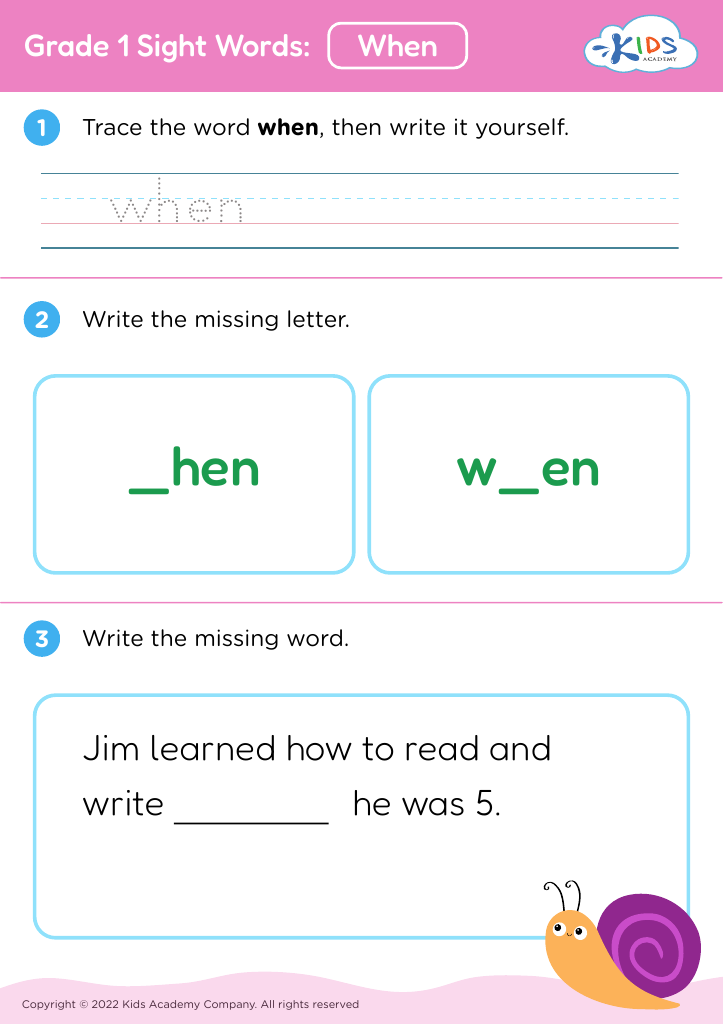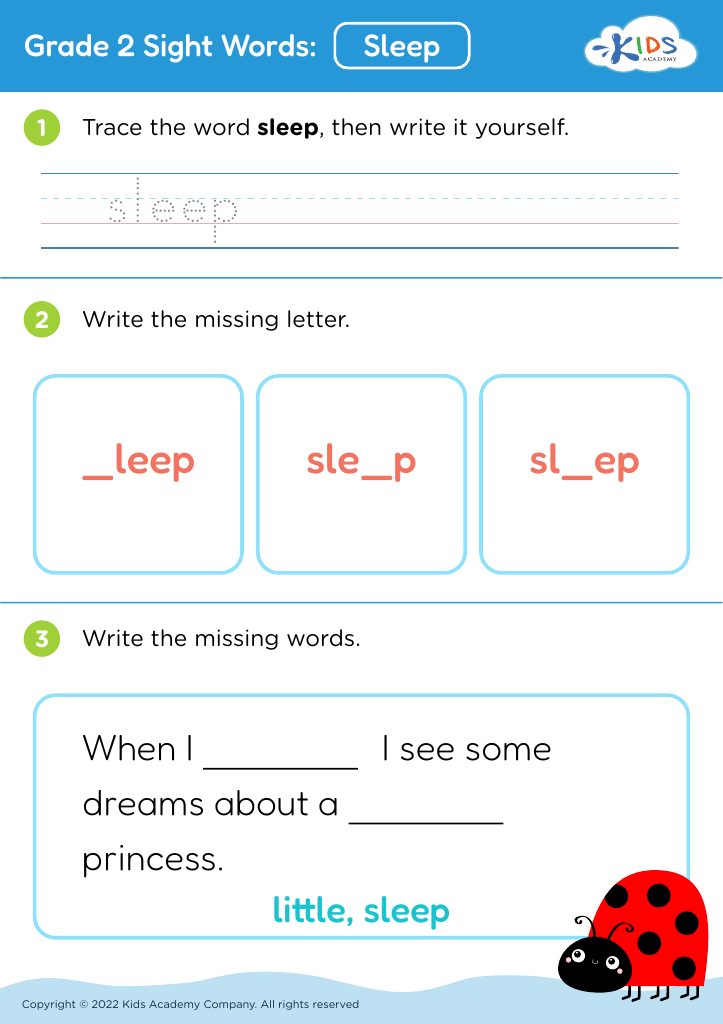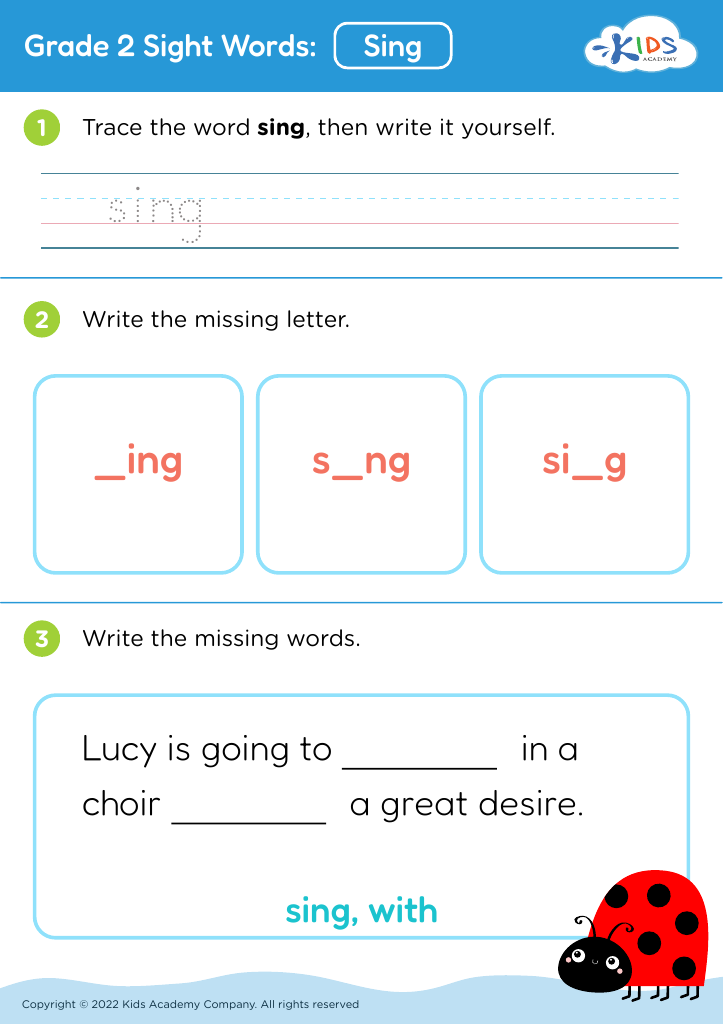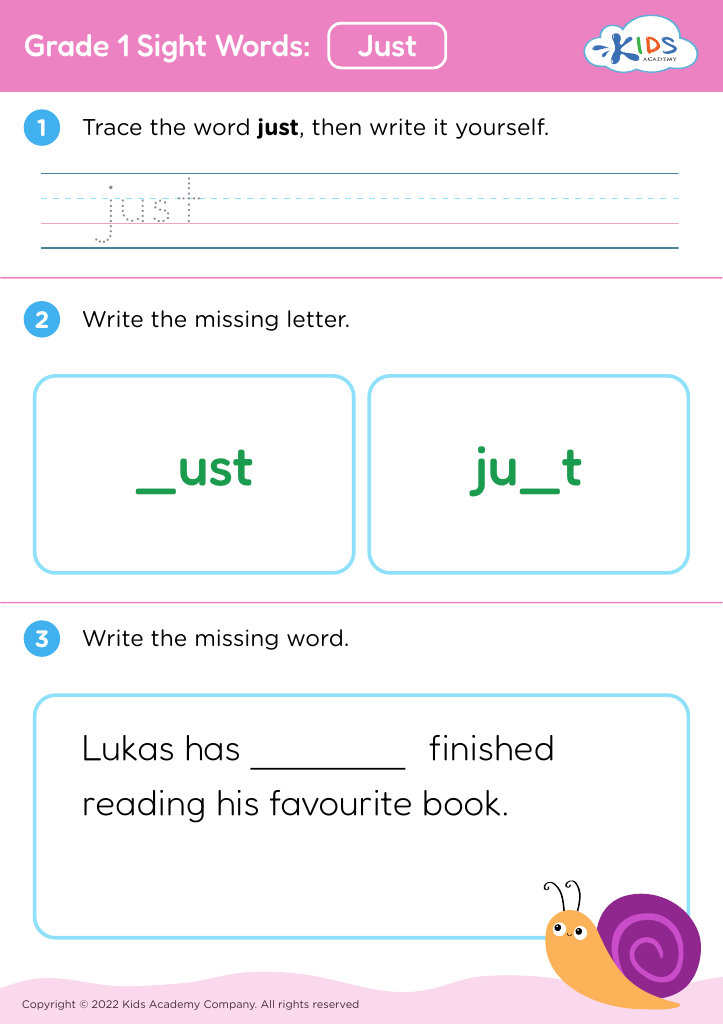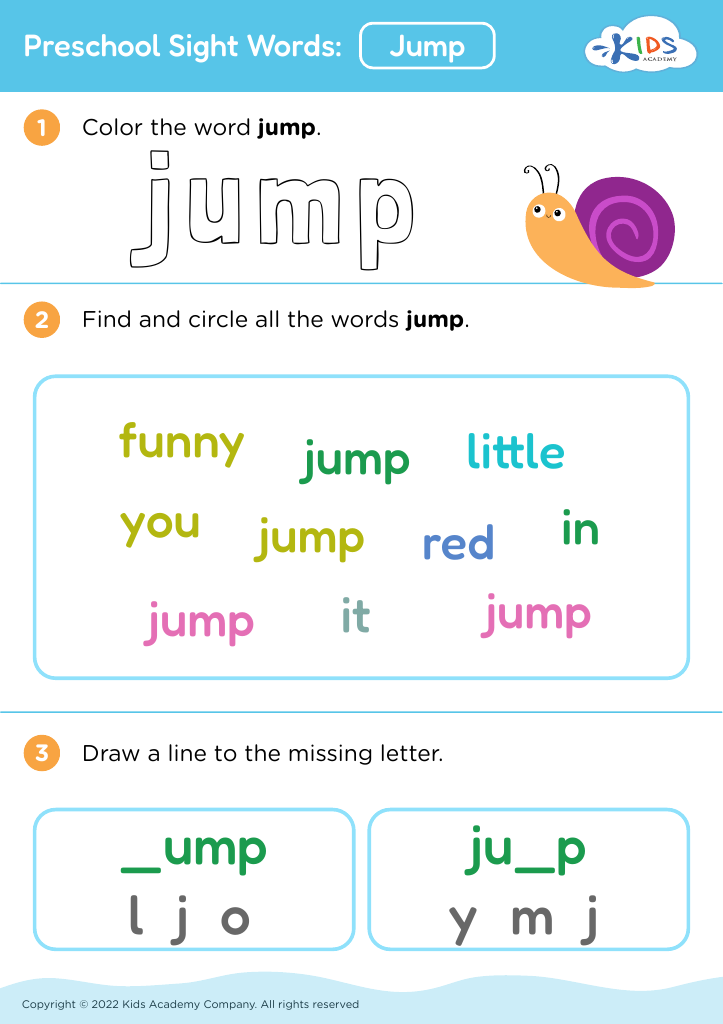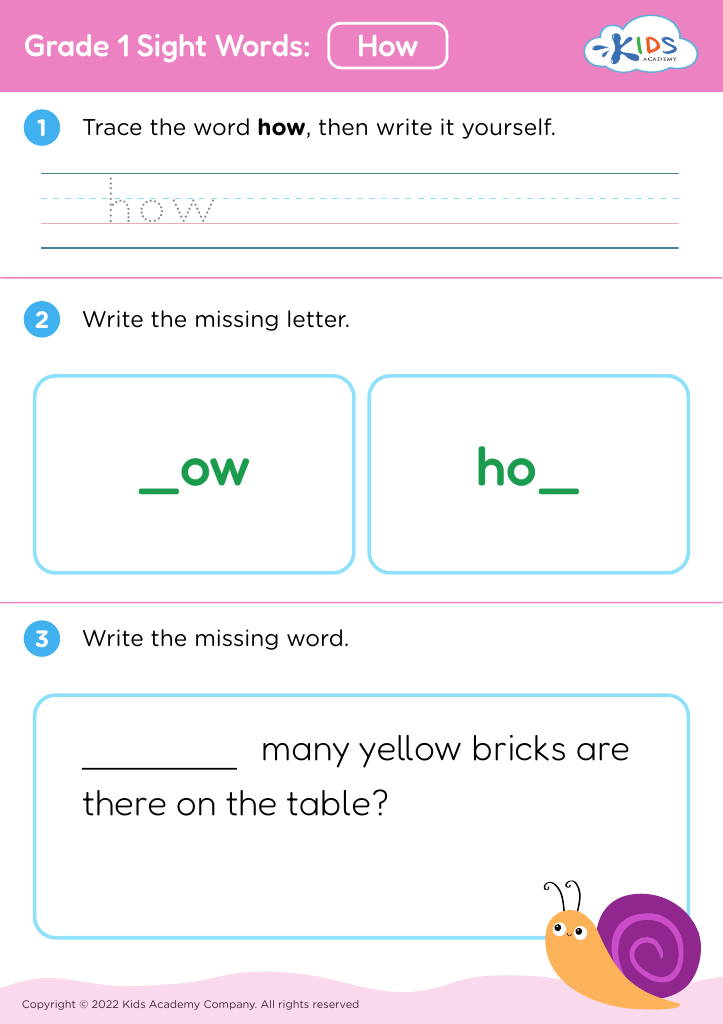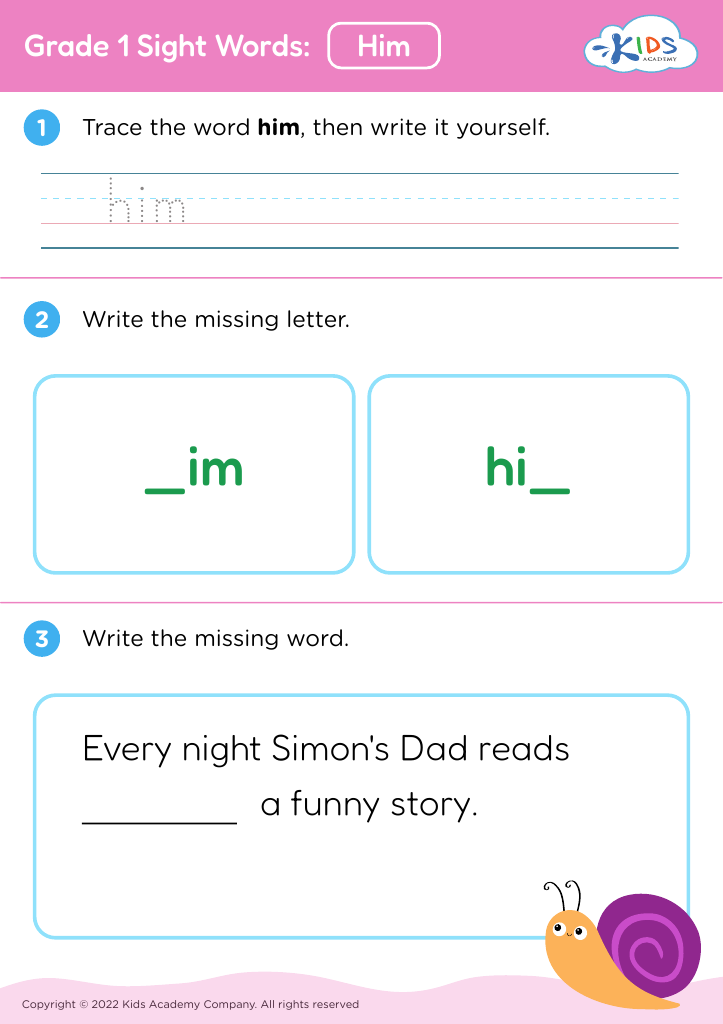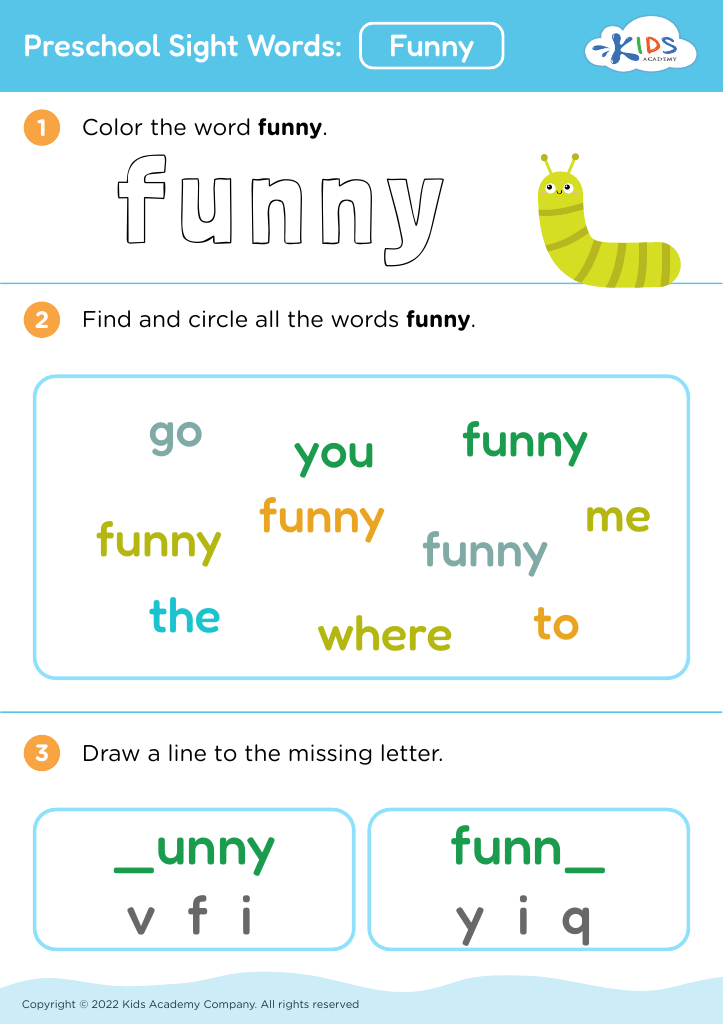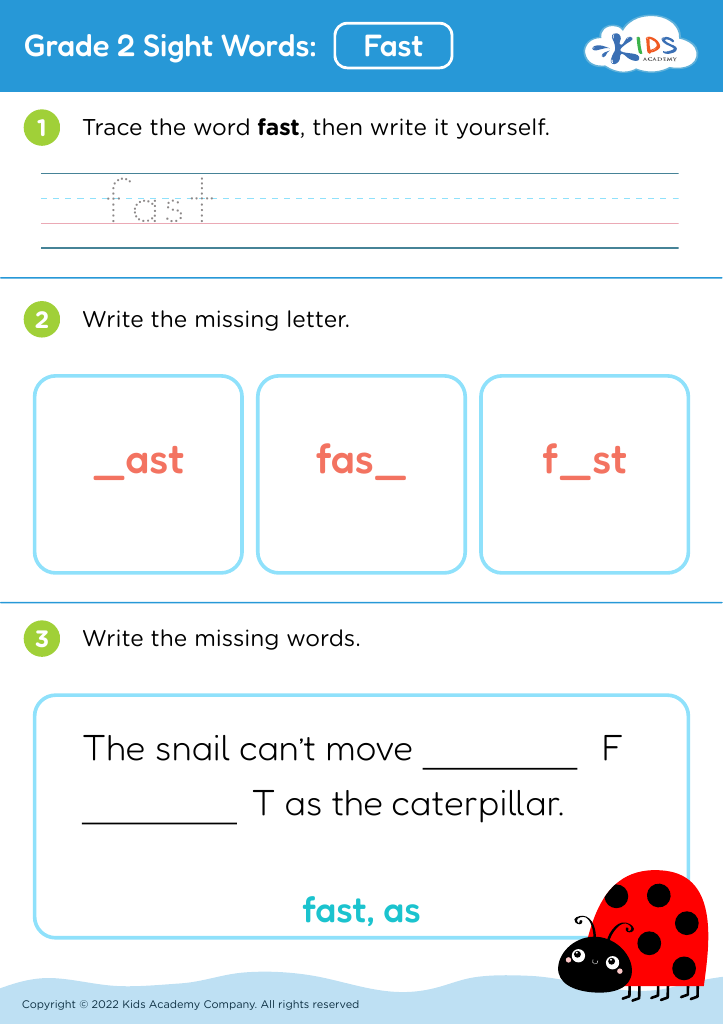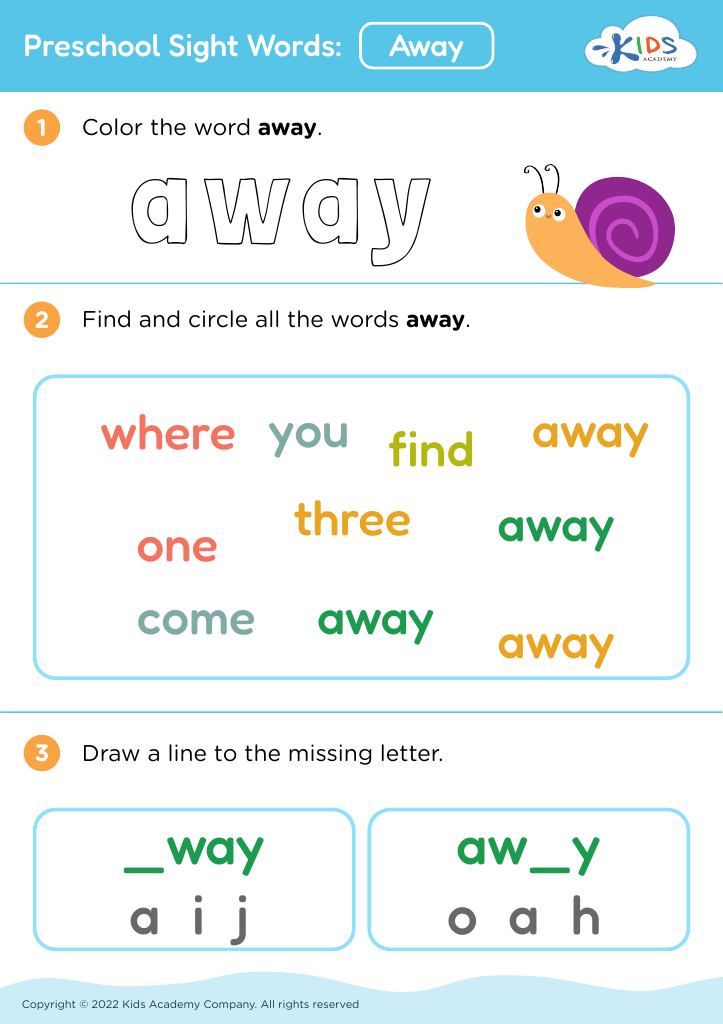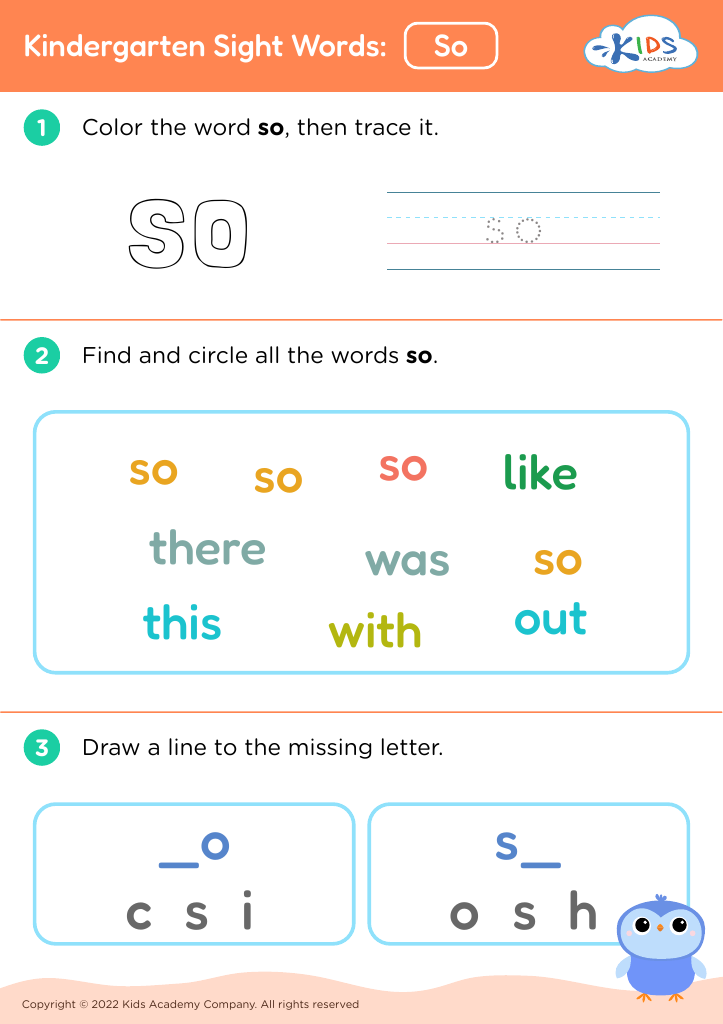Counting skills Building Vocabulary Worksheets for Ages 4-7
27 filtered results
-
From - To
"Counting Skills Building Vocabulary Worksheets for Ages 4-7 provide a fun and engaging way for young learners to enhance their numerical and language skills. These expertly crafted worksheets combine vibrant visuals with interactive activities to ensure children effectively learn to count while expanding their vocabulary. Suitable for preschoolers and early elementary students, these resources support foundational math concepts and word recognition, fostering confidence in their abilities. Ideal for both classroom use and at-home practice, these worksheets offer a comprehensive approach to learning, helping children develop essential skills to succeed in their academic journey."
Feel free to adjust any part to tailor it to your preference!


Frame it Up Worksheet
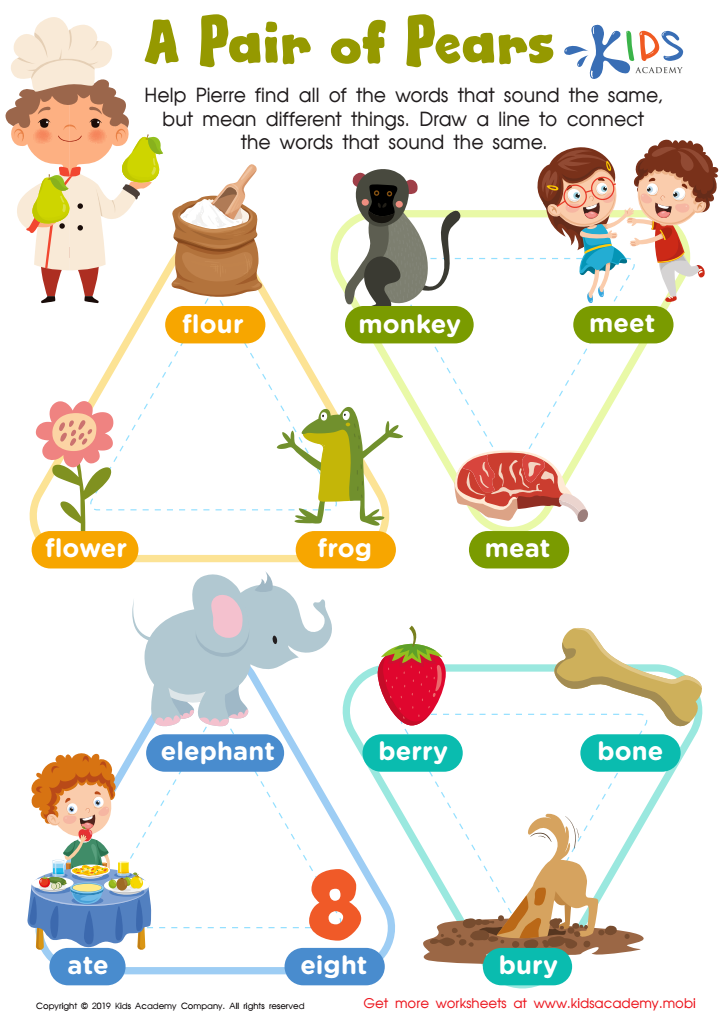

Pair Pears Worksheet
Counting skills and building vocabulary are foundational elements in early childhood education that significantly contribute to a child's cognitive development and future academic success. During ages 4-7, children's brains are highly adaptive and primed for learning new skills.
First, counting skills form the basis of mathematical literacy. They enable children to understand numbers, patterns, and basic arithmetic, which are essential for more complex problem-solving later on. Teaching children to count fosters logical thinking, enhances memory, and promotes the ability to follow sequences and orders—skills that are invaluable in everyday life and academic pursuits.
Vocabulary building is equally important. A rich vocabulary enhances communication skills, aids in reading comprehension, and encourages children to express their thoughts clearly and effectively. With a strong vocabulary, children are better equipped to understand and process new information, making learning in all subjects easier and more effective. It also fosters curiosity and a love for reading, which can lead to lifelong learning.
By prioritizing counting skills and vocabulary building, parents and teachers lay the groundwork for a child's overall intellectual growth. These skills not only prepare children for formal schooling but also continually benefit them in complex social and academic environments. Investing time in developing these abilities ensures children have a strong, adaptable foundation to succeed in various aspects of their lives.
 Assign to My Students
Assign to My Students













